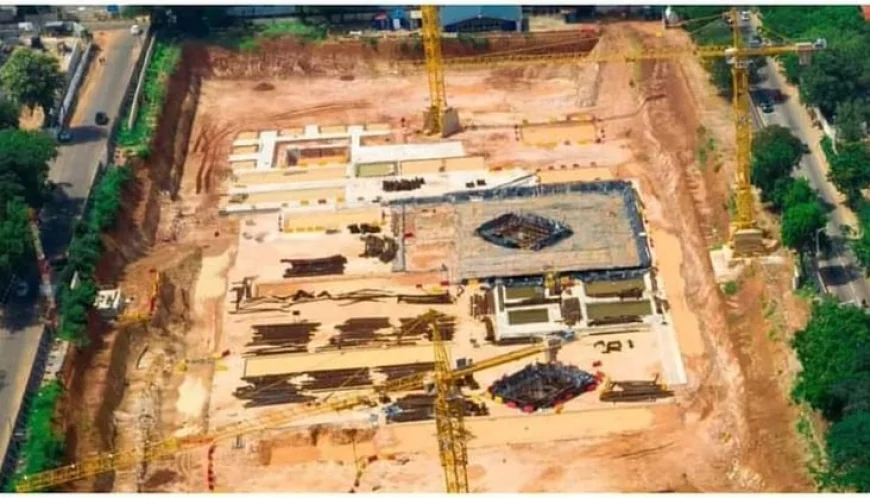$97 Million for a Hole: Audit Reveals Shocking Cathedral Project Costs
Audit Uncovers Poor Accounting, Missing Documents, and Contract Irregularities

Ghana’s controversial National Cathedral project has so far cost the nation a staggering $97 million, according to newly released figures from the Ministry of Government Communication.
Minister Felix Kwakye Ofosu made the disclosure at a press briefing, citing findings from a forensic audit ordered by President John Dramani Mahama and conducted by international firm Deloitte and Touche. The audit uncovered serious financial irregularities, including weak internal controls, a lack of due diligence, and the absence of supporting documentation for key expenditures.
“Equally troubling is the failure of management to produce documents to support several transactions, including office costs, board expenses, and accommodation for the symposium hosted by the Biblical Museum of Africa,” Kwakye Ofosu revealed.
Contrary to earlier public belief that $58 million had been committed to the project, the audit revealed an additional $39 million still owed to the contractor—bringing the total cost of the halted project to $97 million.
Kwakye Ofosu also lamented that despite work having stalled years ago due to unfavourable contract terms, costs are still accruing.
“The taxpayer continues to suffer losses even though construction has ceased. The terms of the contract were not only flawed but financially dangerous,” he said.
Initially envisioned as a religious and cultural landmark, the National Cathedral was expected to house a Bible Museum, Biblical Garden, banquet hall, 350-seater restaurant, library, and conference centre — a hub for faith-based tourism and national pride.
However, with no meaningful construction progress and mounting debt, the project has become a symbol of fiscal mismanagement.
The audit findings follow President Mahama’s recent order to dissolve the Cathedral’s Board of Trustees and shut down its Secretariat — a move aimed at restoring public confidence and accountability in state-financed projects.


